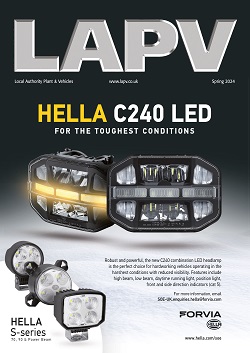As the UK moves beyond a throwaway society local authorities are having to make big strides in their waste management initiatives to ensure they keep up with the increase in recyclables, writes Nick Preston, commercial and marketing director of Faun Zoeller.
To reduce the amount of household waste sent to landfill, local authorities are increasing the number of recycling services they offer and have branched out to a wider variety of collections such as food waste and plastic.
According to figures released by the Department for Environment, Food and Rural Affairs (Defra) the new schemes are working: the proportion of household waste sent for recycling, composting or reuse between April 2010 and March 2011 increased to 41.2% from 39.7% the previous year.
Consequently, this raise in household recycling has meant that the amount of waste sent to landfill has decreased considerably by 8.8 % to 11.4 million tonnes.
However, as positive as these figures are, as the number of collection rounds increase to accommodate the recycling drive, so do local authorities' carbon emissions and fuel consumption.
Tests have shown that when a vehicle accelerates from standstill fuel usage is at its highest level. The very nature of kerbside collection rounds means that refuse vehicles are continually involved in stop-start driving ' something which results in raised fuel consumption.
With both operating costs and pollution levels under scrutiny, local authorities must ensure that their increased fuel consumption doesn't diminish the results of their environmental efforts elsewhere.
New innovations in RCV technology mean that there are now many ''green vehicles” available ' such as electric hybrids or refuse collection vehicles (RCVs) with increased capacity. However, fleet modernisation is a long-term project with significant capital requirement.
We have developed the eco drive assistant (EDA); an electronic device that can be fitted into the cab of an RCV chassis to help the driver in optimising fuel consumption.
The technology works during the stop-start driving phase of a collection round. It measures road speed, engine revolutions and the input from the acceleration pedal to assess the correct amount of manipulation needed. This means the automatic gearbox progresses through the gears optimally from standstill.
This results in more efficient acceleration without unnecessary over-revving or fuel-wastage between each collection point.
The EDA also monitors the actual driving conditions such as on-board weight and road inclination in combination with the information from the engine to accurately adapt the amount of accelerator manipulation in any given situation.
Depending on the circumstances, fuel savings of up to 20% are achievable in the stop-start phase of the collection round ' a considerable amount when many local authorities have extensive fleets that carry out thousands of collections every day.
To give all local authorities' access to the technology the device has been specially designed to have a universal fitment so that it can be installed on vehicles already in use as well as new ones.
Added savings come from the EDA system because by nature of its operation it reduces the stress on an RCV engine. This prolongs the lifespan of the vehicle itself and therefore reduces maintenance and replacement costs.
The technology has undergone extensive trials with several local authorities to demonstrate the savings that can be achieved in real-life situations.
A council in Yorkshire decided to trial the device on a Mercedes-Benz Econic chassis and found that they could make significant savings.
The vehicle they tested was maintained on the same collection route with the same driver and was filled with fuel each day to create as controlled conditions as possible.
Before the device was installed it was calculated that the vehicle's fuel consumption was 2.66 miles per gallon (MPG) and it was calculated that this increased by 5.02% to 2.79 MPG during the trial period. This increase means the council would make a saving of over £700 in fuel and nearly 2,000kg of CO2 per RCV each year.
As carbon emission reduction moves to the forefront of the environmental debate local authorities need to re-evaluate every one of their practices to ensure they are as efficient as possible ' and household recycling collections should be no exception.
The EDA device is just one of a range of complementary technology that councils can employ to make their waste services more eco-friendly.
In an ideal world local authorities should be able to combat the carbon problem by creating a fleet that combines simple technology like the EDA device and sophisticated hybrid vehicles with increased capacities.

